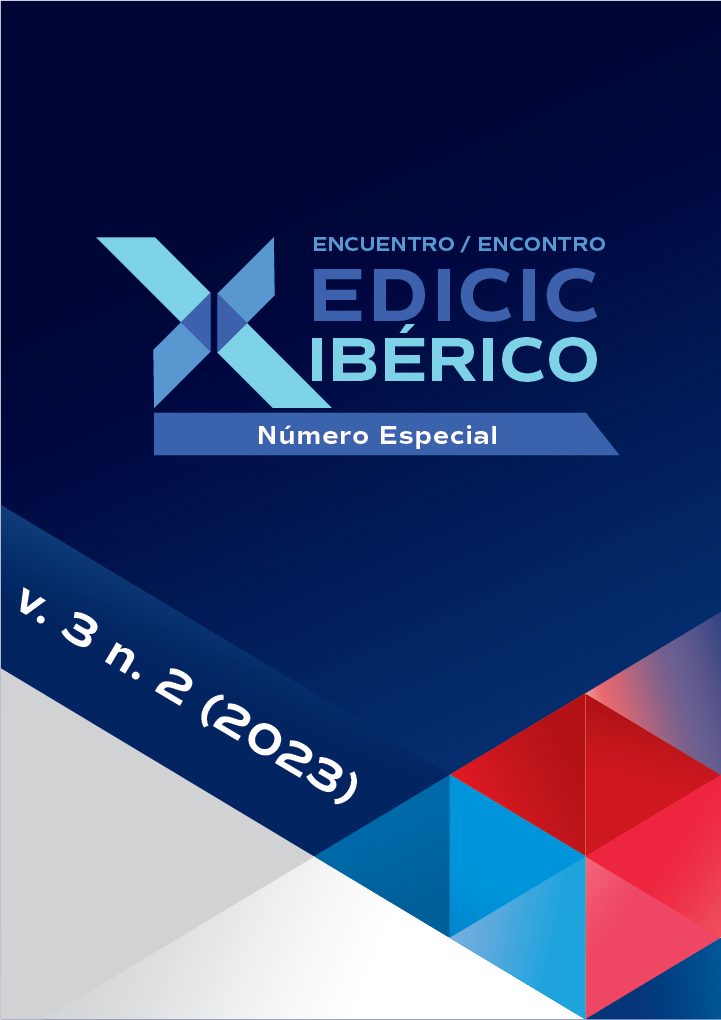Fragmented community memories in public libraries
DOI:
https://doi.org/10.62758/re.v3i2.270Keywords:
Memory, Community, Public Library, Fragmented Community MemoriesAbstract
It presents the concept of 'fragmented community memories', aligning the categories of memory, community, and fragment. It emphasises memory as a social phenomenon and cultural component located between knowledges and knowledge, in the midst of subjective and intersubjective relationships marked by affections and crossings. It anchors the concept of memory to Benjamin's experience and emphasises the creative dimension of memory based on power structures. How can we recognise fragmented community memories as paths of resistance, production, experience, and creation in public libraries? poses itself as a problem and gives rise to the following general objective: to recognise fragmented community memories and their dynamics, understanding that they form their own resistance for community empowerment and tackling information poverty. It recognises the reality of communities on the periphery of Brazil, marked by social inequalities and a general lack of structure in a country that disregards history and memory as essential components in the construction of ways of existing. It points to infotechnological exclusion, its challenges, and problems in establishing new socio-cultural practices, moulding the shift from disciplinary logic to control (FOUCAULT, 1997); just like the shift from experience to living in Benjamin. All of this determines ways of life - of seeing, acting, remembering, and forgetting, propagating changes in the social field of memory and perception (Foucault, 2006; Benjamin, 2012). The research is defined as social, theoretical-empirical, exploratory, and qualitative, focussing on bibliographical research. It is possible to state that libraries help to transform the history of communities, provided that people take the lead in the domains of the past and present in order to illuminate the future. The concept of fragmented community memories positions the discussions on the concept of 'memory', admitting the complexity of writing about the concept of resistance, because it requires a series of elements that build the relationship between this and memory. Resistance is configured in the modes of production, experience, and creation of subjects, as long as they are linked to power structures. Salztrager and Gondar (2021) emphasise memory as an instrument of power, as a means of instituting norms and values, so it is also a place of resistance. (2013) points out that resistance is first in relation to power, so there is no power without resistance. Why "fragmented community memories"? Because every political power aims to control memory, selecting what should be remembered or forgotten, so each memory and forgetting functions as a 'shard' of memory, and a sum of shards forms a Benjaminian mosaic. If power is productive and essentially produces subjectivity, Foucault argues that memories are produced, and this is where the research lies. And, above all, if these subjects (communities) participate in disputes (remembering-forgetting), the manipulation of memory functions as one of the greatest mechanisms for managing history and maintaining inequalities and informational poverty.
References
Achilles, D. (2018). Comunidade de práticas em bibliotecas públicas: informação e intercâmbio de experiências. UNIRIO. (Projeto de Extensão).
Achilles, D. (2022). Comunidade de práticas em bibliotecas públicas: trajetórias teórico-práticas para a construção das narrativas históricas, identitárias e de memória das bibliotecas populares junto das comunidades do município de Niterói (RJ). UNIRIO. (Projeto de Extensão).
Achilles, D. (2022). Memórias comunitárias fragmentadas: caminhos da resistência enquanto produção, experiência e criação em bibliotecas. UNIRIO. (Projeto de Pesquisa).
Achilles, D. (2023). Programa Comunidade de práticas em bibliotecas públicas. UNIRIO. (Programa de extensão).
Alberti, S. (2005). A perversão, o desejo e a pulsão. Rev. Mal-Estar Subj. vol. 5, n.2, p. 341-360.
Alfaro López, H. G. (2010). Estudios epistemológicos y la biblioteca. UNAM, Centro Universitário de Investigaciones Bibliotecológicas. DOI: https://doi.org/10.22201/cuib.9786070207488e.2010
Augé, M. (2012). Não lugares: introdução a uma antropologia da supermodernidade. Papirus.
Benjamin, W. (2012). Magia e técnica, arte e política: ensaios sobre literatura história da cultura. Brasiliense.
Benjamin, W. (2014). Rua de mão única; infância berliense. Autêntica.
Deleuze, G., & Guattari, F. (1995). Mil platôs: capitalismo e esquizofrenia. Ed. 34.
Foucault, M. (1995). O sujeito e o poder. In: Dreyfus, H.; Rabinow, P. Michel Foucault: uma trajetória filosófica para além do estruturalismo e hermenêutica. Forense universitária.
Foucault, M. (1997). Resumos dos cursos do College de France (1970-1982). Jorge Zahar.
Foucault, M. (2006). Michel Foucault: estratégia, poder-saber. Forense Universitária.
Freud, S. (2010). Recordar, repetir e elaborar – 1914: novas recomendações sobre a técnica da psicanálise. Companhia das Letras.
Freud, S. (2013). O mal-estar na cultura. L&PM.
Gagnebin, J. M. (2013). História e narração em Walter Benjamin. Perspectiva.
Gagnebin, J. M. (2014). O trabalho de rememoração em Penélope. Ed. 34.
Gondar, J. (2016). Cinco proposições sobre memória social. In. Dodebei, V., FARIAS, F. R., & GONDAR, J. (Org.). Por que memória social? Híbrida.
International Federation of Library Associations and Institutions (2022). Manifesto da biblioteca pública. IFLA-UNESCO.
Maciel Jr., A. (2013). Resistência e prática de si em Foucault. Trivium.
OMS Brasil. Disponível em: https://www.paho.org/pt/brasil.
ONU Brasil (2015). Agenda 2030. Disponível em: https://www.unodc.org/lpo-brazil/pt/crime/embaixadores-da-juventude/conhea-mais/a-agenda-2030-para-o-desenvolvimento-sustentvel.html. Acesso em 20 set. 2023.
Thiesen, I. (2013). Memória institucional. Ed. UFPB.
Wenger, E. (1998). Communities of practice: learning, meaning and identify. Cambridge University. DOI: https://doi.org/10.1017/CBO9780511803932
Downloads
Published
How to Cite
Issue
Section
License
Copyright (c) 2023 Revista EDICIC

This work is licensed under a Creative Commons Attribution 4.0 International License.
The Association holds the copyright of the texts it publishes and, therefore, adopts a Creative Commons License, CC BY 4.0 DEED Attribution 4.0 International (https://creativecommons.org/
You are free to:
- Share: copy and redistribute the material in any medium or format for any purpose, even commercially.
- Adapt: remix, transform, and build upon the material for any purpose, even commercially.






